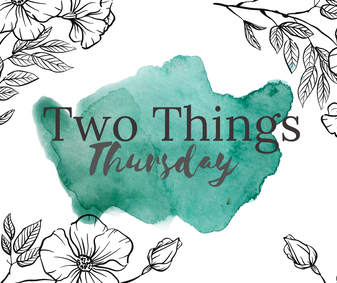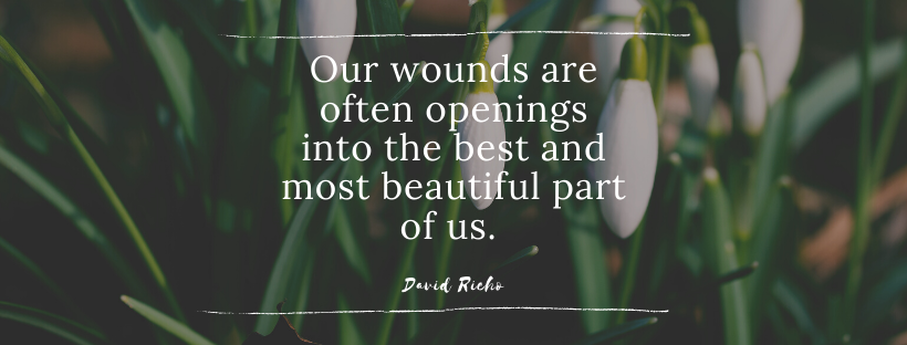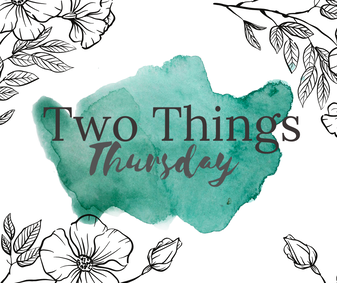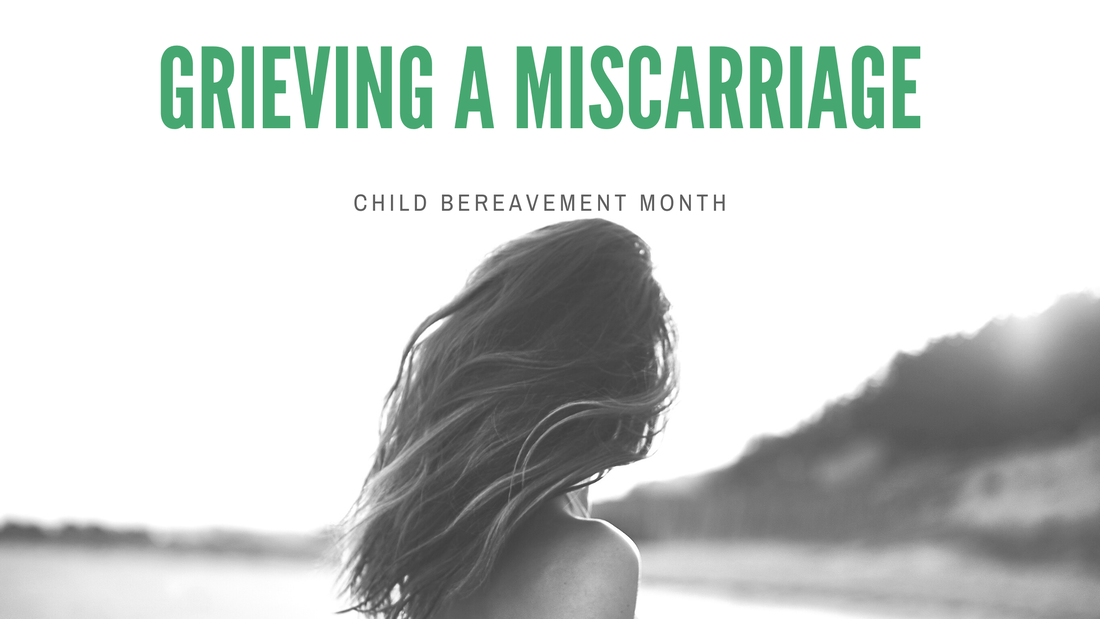|
Trigger Warning; this post discusses grief, miscarriage and stillbirth. Sometimes it's important to process these things by reading about them and sometimes that might not fit where you are emotionally. Honor yourself and take care.
July is Child Bereavement Month About 15-20% of confirmed pregnancies end in a miscarriage. This number is probably even higher as some pregnancies may be miscarried before the person even realizes they are pregnant. For some, a miscarriage is a blip on their journey towards having a baby. For others, a miscarriage is devastating and the grief unbearable. Whatever emotions you are feeling are ok; no one can tell you what to feel or how intense and long this will hurt. There are no "right" ways to grieve the loss of your pregnancy but here are some ideas that may help Find Support Some of us need to process things externally; we might need to talk with others about how we feel in order to sort through them. If this describes you, find your people. Most of us aren't very good at talking about grief and so some people may not respond the way you need them to. Find the people you can talk to though; this may need to be someone else who has gone through a miscarriage, a support group (Facebook has a few really great private groups for this), or even a therapist. It might also be helpful to find someone who doesn't pressure you to talk when you don't want to. Respect Your Feelings A lot of times friends, family members and even medical professionals will treat a miscarriage as no big deal; especially if it was early in the pregnancy others may expect that you weren't very attached yet and can just move on. If you feel like you can, great! And if you don't feel that way, that's ok too! In my experience as a therapist, a lot of people feel like they should get over things faster than they are. This may show up as your grief getting unexpectedly triggered by various events. Respect yourself and your needs. Expect Some Triggers One hard situation a lot of people face after a miscarriage is attending events like baby showers, meeting a friends new baby, or finding out someone else is pregnant. It's ok to have mixed feelings; you can be happy for a friend and want to support them while also reminded of your own loss. You may even find yourself needing to step back from these situations to respect your emotions. Sometimes talking about this with your friends can be helpful, sometimes not; trust your knowledge of yourself and your relationships. Most friends will be understanding if you need some space with these events that you are not "selfish" or "don't care" if you aren't ready. It's also ok if you these events don't increase your grief; it doesn't mean you don't love your baby if you don't feel triggered. If you get pregnant again or have a child after your miscarriage, this may also bring up grief and could be bittersweet; again none of these feelings are wrong or makes you a bad person or parent. It's Ok to Have Mixed Feelings About Getting Pregnant Again After a miscarriage, others may expect you to want to get pregnant again as soon as possible. And maybe this is something you want and feel ready for. For some people, this may bring up a lot of anxiety and it's normal to be fearful of having another miscarriage. It's also ok if you don't feel ready to start trying right away or even ever again. If you have a supportive partner, this can be a really great thing to talk about with them and find a good plan around sex and what next steps and timeline feels right for your family.
0 Comments
I attended an awesome training yesterday from Dr. Sayida Pepera with Diversity Uplifts all about transgenerational trauma and maternal health; this focused on the impact that slavery, racism and generations of violence have had on the mental health of the Black community, especially for Black mothers and Black pregnant folx.
One really important point that came up was giving ourselves and the people we work with permission to take care of ourselves especially when the news is triggering; and lately it's often triggering. Between the ongoing protests against police brutality after the murders of several Black men and women to ongoing fears about COVID-19 and the arrest of Ghislaine Maxwell, there is a lot that can bring up our past trauma right now. So what can you do when the news is triggering? Know Yourself None of these recommendations are one size fits all; you may be someone who needs to avoid the news completely during these times while another trauma survivor may become very involved and find talking about it healing and empowering. And that's ok! Know thyself! Become good at checking in with your emotions and your reactions to the news. Know what it looks like when you are triggered; do you shut down, do you become angry, do you start to get really on edge? It's also really helpful to know your own limits. This is easier said than done; a lot of us don't always notice when we are triggered so it may be helpful to enlist in the support of someone you trust, whether that be a friend, a partner or a therapist. Turn Off For some of us, we may need to avoid the trigger if possible. This may look like limiting how much news we are reading or watching (say only three articles a day or only 5 minutes at a time) or not consuming any at all. We may also need to change how engaged with social media we are as this is where a lot of us get our news. Whether it be "taking a break" from certain people or groups on your timeline or logging off for a bit altogether, moderating our Facebook, Instagram and Twitter usage can be a way to honor ourselves. Watch Out for Vicarious Trauma A lot of you involved with social justice work or working in a care-giving professions you may have heard of the idea that hearing about and witnessing others traumas can lead us to developing trauma symptoms. This is especially true if we have experienced trauma before. Our brains can't always tell when something is happening to us versus when something is happening to someone else. It's important for us to notice changes in our sleep, use of substances, avoiding things we usually love and if we are having more trouble getting upsetting thoughts outside of our mind. Practice Self-Care It's ok to take breaks! Even though there are very important things happening in our world right now, it's ok to step back and it's ok to do things that we enjoy and find comforting and relaxing even if they don't feel like "the most important things." Having hobbies, getting enough sleep, spending time with people we love is so important for us to grow in our own journeys while also being able to support others in theirs. Happy last day of June and happy last day of Pride month! As promised last week, today we are focusing on LGBTQ+ and pregnancy and postpartum. I'll be honest, there isn't a lot of great research out there; a lot of research on mental health and pregnancy and postpartum period focuses of cis, heterosexual women (and often white, married women at that). What little bit we do have suggests that lesbian, queer and gay women may be at an increased risks for struggling with postpartum depression due to potential lack of support, lack of resources and potentially more difficult process of conceiving a pregnancy if they use IVF or a sperm donor. There is even less information about outcomes for trans, two spirit or gender non-binary folx. LGBTQ Health is currently one of the few groups trying to find out more about postpartum well being. On a positive note though, there is some great research out there about children raised in LGBTQ+ families having really great emotional development and often times being more supportive than heterosexual families. So where does that leave us? One really important thing for anyone postpartum is having is having good support. Some really good online resources include -LGTBA Perinatal Wellness Center https://lgbtqperinatalwellnesscenter.org/ -Colage (parenting support for LGBTQ+) https://www.colage.org/ It's also important to find medical providers who are supportive and safe; there has been a push in the last few years in the OB-GYN world to more towards more inclusive care and part of that includes moving away from language like "pregnant woman" and "mother/father" into "pregnant person/birthing person" and "partner/spouse." Obviously, words are nice but really accepting environments also require ongoing training and willingness for providers to own up to past mistakes. It may be extra important then to shop around and ask for referrals that are safe and LGBTQ+ aligned. Bloom and thrive and see you in July! Trigger Warning; this post discusses sexual assault and domestic violence/intimate partner violence
Also, I use the word folx which some of you may love and some of you may be so confused about and think the k on my keyboard is broken (don't worry, it's working!); you can find more info about this word here https://forfolxsake.com/what-does-the-term-folx-mean/ Happy Pride! One really important part of Pride for a lot of us is education; education about history of the LGBTQ+ (Lesbian, Gay, Bisexual, Trans and Queer) movement including things like Stonewall or pioneers who lead for civil rights such as Harvey Milk, James Baldwin, and Audre Lorde. Another important focus for a lot of us is recognizing barriers, injustices and mistreatment that impact this group more than others. For me as a therapist that means talking about abuse, mental health and trauma. We know that for queer people abuse is a lot more common, especially for trans folx; 47% of transgender people reported being sexually assaulted according to the 2015 US Transgender Survey. Lesbian and bisexual women also report higher rates of sexual assault than straight women. Domestic violence or intimate partner violence (a term that was changed partially to reflect that people of all genders and types of relationship can experience abuse) also impacts the LGBTQ+ community. While all the types of abuse we see in heterosexual relationship exists too, LGBTQ+ folx can also experience extra homophobia such as being threatened with being "outed" to bosses, parents or other people that may not know. Abusers can also say someone isn't "gay enough," "trans enough" or "queer enough" as a way of emotional abuse that makes someone doubt or feel like they aren't being "gay the right way." An abuser may also threaten that there won't be any services or resources if the survivor choose to leave the relationship. Sadly, this is often the case as a lot of shelters are still only for men or women and don't have services that are safe for queer survivors. But there are some really good resources out there! Sadly, a lot of these are at the national level instead of in local communities especially if you don't live in a major city. Some of the ones I really recommend include -The National Domestic Violence Hotline; 1-800-799-7233 https://www.thehotline.org/ -RAINN (The National Sexual Abuse Hotline); 800-656-4673 https://www.rainn.org/ -The Trevor Project (for LGBTQ Youth); 1-866-488-7386 https://www.thetrevorproject.org/ -FORGE (Trans and Gender Noncomforming Survivors of Abuse); https://forge-forward.org/ Of course, Pride isn't just supposed to be all down and bad things; stay tuned for the second post for Pride focusing on pregnancy and postpartum for same-sex couples and queer folx. Bloom and Thrive.  Happy Thursday! I hope your week is going great! Today on Two Things we are talking about saying no. Man, if there is one thing I hear as a therapist over and over again it's not knowing how to say no. Especially for new parents and survivors of abuse, saying no is SO HARD. So here are two tips to help you out. 1. Big secret; it gets easier with practice! So practice with little things; when someone in a store asks if you need help instead of saying "I'm just browsing" or "I'm good" try just "no thank you." Practice with family and friends saying no; you can even give them a heads up that you are practicing if you are super worried about hurting feelings by saying no. It will get easier. 2. Try just saying "no" or "no thank you" and leaving it at that. A lot of time, especially for us women, we are use to adding a lot of things to our nos. We say "I'm so sorry!" or "I wish I could" or make up really elaborate excuses. A lot of times, a plain "no" will work best and doesn't leave wiggle room. I think a lot of us have had the experience of thinking we are going to say no to something and slowly being talked into a yes. Again, this gets easier with practice, so keep trying! You've got this, go bloom and thrive!  Trigger Warning; this post mentions rape/sexual assault and abuse You've probably heard the word trauma before; maybe from things like trauma centers for hospitals or about soldiers returning from war. But what does it mean? For us therapist we have an "official" trauma definition from our big diagnosis manual, the DSM. In there, trauma is defined as "exposure to actual or threatened death, serious injury, or sexual violence." That's a lot to take in! And you might be thinking that there are some things that don't quite fit in this definition, for example where would emotional abuse or some types of neglect fit in? As a trauma therapist I like to talk about trauma this way; we like to think of our brain as this orderly place where everything is sorted and stored so we can get memories anytime we want. The more though we learn about memory, we are finding this isn't quite true especially with trauma; for whatever reason these memories don't get stored right. Sometimes with these situations, we maybe felt like we were about ready to fight, run or we just froze up. Because these memories weren't stored right, they sometimes come up at a totally wrong time. An example of this may be for someone who was abused, when they see a stranger who looks like their abuser on the street, their heart beats faster, memories start going through their head and they feel like running. A few things to note about trauma though; first, one thing that is traumatic to one person may not be traumatic to others. Trauma is very subjective which makes it hard for us to make a specific definition. For example, two people may be in the same car accident and one develops trauma symptoms and one doesn't. Second, trauma is super treatable! Since we started researching trauma, we've found a lot of treatments to manage it including types of therapy like EMDR or trauma focused CBT and medication. A lot of people survive through trauma and while they don't forget what happened to them, are able to go on and live happy, fulfilling lives! Are there other things you want to know about trauma? Feel free to leave them in the comments!  It’s Thursday! You’re almost done with your week! But what if you are having trouble sleeping? Maybe you can’t fall asleep because of everything on your mind? Two tips 1. Create a bedtime routine and STICK TO IT. Maybe you take a bath, drink some tea or (my favorite) read a book. Whatever it is pick something soothing and calm (not the time for a Peloton workout!) and relax. 2. If your brain is racing, try a brain dump; grab a pen and a blank piece of paper and take 5-10 minutes to write down everything you are thinking about. Worried about forgetting to pay your water bill? Write it down. Still upset about a conversation that didn’t go well? Write it down. Once you’re done, put the paper away (ps this is a great use for the drawer of your nightstand) and catch up on zzz’s. Sweet dreams! |
ArchivesCategories
All
|



 RSS Feed
RSS Feed
